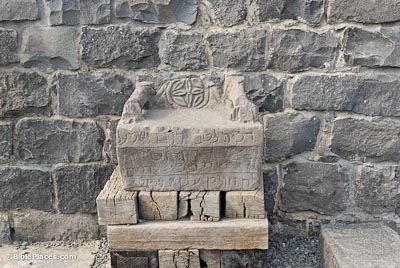Isaiah 26: 27:6–8:13 and 29:22–23, YHVH Speaks Out Against Assimilation With the World
The prophet Isaiah wrote his rebukes of Ephraim (the Northern Kingdom, 27:6–28:6) and of Judah (the Southern Kingdom, 28:7–13) during the time period after the fall of the Northern Kingdom to Assyria in 721–723 B.C. and before the fall of the Southern Kingdom to Babylon in 586 B.C.
Isaiah 27:9, Groves/asherim and sun images /pillars. In this passage, Isaiah denounces the people of Ephraim for their worship of pagan deities. If Isaiah were alive today, what pagan practices within the Christian church would rankle his ire?
Isaiah 28:7, The priest and the prophet have erred through strong drink … wine … they err in vision, they stumble in judgment. Here the prophet is addressing Judah. In Scripture, when wine causes spiritual degradation what is the cause of this? (Read Revelation 14:8; 17:2; 18:3.) Wine is the stuff of spiritual harlotry. What does YHVH plead with his people to do in this regard? (Read Rev 18:4.)
Through the lips of his prophets, YHVH not only bring words of rebuke and judgment to his people, but also words of encouragement. Isaiah speaks of a time when not only will YHVH discipline his people for their idolatrous ways, but he will bring them back from exile and restore them as a people to worship him (instead of pagan deities) in their own land. In this regard, study the following passages: Isaiah 27:12–13; 28:5–6; 29:22–23. Have these prophecies yet been fulfilled with regard to both houses of Israel (Ephraim and Judah)?
What are some examples of humanist or pagan influences that persist in the modern Christian church (Ephraim) and in Rabbinic Judaism (Judah), which could lead to YHVH’s judgment? Here are a few examples to ponder:
Rabbinic Judaism and Humanism
Rabbinic Judaism went humanist at Yavneh after the destruction of the Temple in A.D. 70 when rabbinical authority replaced the Levitical authority. It was there, under the influences of such rabbis as Akiba, that Judaism rejected divine authority and established the rabbinical system. Some say this was necessary to insure the survival of Judaism in the wake of the destruction of the Temple and removal of Jews from Jerusalem and environs by the Romans after A.D. 135. But this reason does not explain why or how so many Jewish traditions supplanted the truth of the Bible before this time. Yeshua makes reference to this in Matthew 15:1–9. Rabbinic authority often supplanted the Word of Elohim. “The Jewish Encyclopedia” defines ‘Rabbinical Authority’ as ‘The power or right of deciding the Law, in dubious cases, or of interpreting, modifying, or amplifying, and occasionally of abrogating it, as vested in the Rabbis as its teachers and expounders’” (Rabbi Akiba’s Messiah, Daniel Gruber, p. 82, emphasis added). Some examples of this are as follow:
- The concept of the “Oral Torah/Law” came into being sometime in the second-century A.D. as being on a par with or greater than the Written Torah (Gruber, pp. 60, 76–77). This led to the traditions of the elders, which were eventually codified in the Mishnah and Talmud.
- YHVH is subject to rabbinic halachic (legal) rulings (Ibid., pp. 76–77).
- There are many rabbinic decrees and rulings that supplant biblical law. This was especially the case after the destruction of the Temple when the Jewish religious leaders practically reinvented their religion (Ibid., p. 78). Examples of this are:
- Alternative means of atonement (the shedding of blood is no longer necessary; atonement is achieved through prayer [tefilim], charitable deeds [mitzvot] and charitable giving [tzedakah]) along with other activities such as study of the Torah, being circumcised and giving to the Jewish “rabbis” (Ibid.).
- In Matthew 23 (along with Matt 15:3–9 and Mark 7:7–13), Yeshua rebukes the Jewish leaders of his day for replacing YHVH’s Torah with man-made traditions.
- The Jewish leaders or sages are allowed to make pronouncements from Moses’ Seat or by beit din (rabbinic) ruling (called takanot and ma’asim) that totally annulled the Torah (Gruber, pp. 80–81; The Hebrew Yeshua Versus the Greek Jesus, Nehemiah Gordon, pp. 47–53). Later these rulings were codified into the Talmud (Gordon, p. 52).
- The sages have the right to change and control the calendar. The modern rabbinic or traditional Hebrew calendar dates to A.D. 360. For example, many times, according to the rabbinic calendar Rosh Chodesh (the new moon) does not fall on the actual day the new moon is sighted, and Yom Teruah (the Day of the Shofar Blowing ), which Torah states must fall on the first day of the seventh month (i.e., the rosh chodesh of that month), does not actually occur on rosh chodesh.
- One month on the Jewish calendar is named after a pagan deity (Tammuz) when the Torah specifically states that Israelites are not to take the name of pagan deities on their lips.
- Rabbinic law allows a divorced and remarried woman to remarry her first husband, something Torah forbids (Gruber, p. 81).
- The Jewish sages instituted the laws of postponement, which says that YHVH’s feasts cannot fall on certain days, and therefore have to be postponed.
- The sages teach that baking soda (sodium bicarbonate), a leavening agent, is permissible to eat during the Days of Unleavened Bread when Torah demands that we abstain from all bread containing leavening agents.
- The wearing of all white tzitzits (fringes) have replaced the Torah law that says they must have a blue thread.
- Torah says that Israelite lineage is determined by one’s father. Modern rabbinic law says that it is determined by one’s mother.
- The ineffable name doctrine, which states that using the Hebrew names of Elohim (e.g., YHVH) are prohibited, even though Scripture commands that we use them and not forget them.
- Singing and playing of musical instruments is prohibited under rabbinic law at religious services (Sabbath and appointed times), yet the Torah commands that the shofar be blown on these days, and the Psalms speak of it occurring, and the biblical record states that music and singing were a big part of the Levitical priesthood system in the Temple (Jewish Book of Why, Alfred J. Kolatch, p. 143).
- The shofar is never blown on the Sabbath, even when the Day of Shofar Blowing falls on a Sabbath, even though Torah commands us to do it (Kolatch, p. 228).
- The anti-missionary movement within Judaism is the outgrowth of humanist philosophy, for it attempts to destroy the deity of Yeshua and rejects the authority and divine inspiration of the Renewed Covenant Scriptures.
Christianity and Humanism
Christianity is not to be outdone by rabbinic Judaism when it comes to replacing the Word of Elohim with the traditions of men. To the degree that Christianity has rejected Torah, replacing it with men’s traditions, is the degree that it is a humanistic religion. Christianity is becoming more humanistic all the time. That is why modern-day “prophets” like Francis Schaeffer attempted to warn the church about the perils of secular humanism. Here are some areas where the modern church has succumbed to the influences of the philosophy of secular humanism:
- The Catholic Church makes pronouncements ex cathedra (from the chair of papal authority) to establish doctrines and traditions that are contrary to Scripture.
- The establishment of pagan-based Christian holidays that have replaced YHVH’s biblical feasts. This is a form of interfaithism and syncretism with other pagan religions.
- Sunday replaced the Sabbath as a day of formal gatherings and worship (more syncretism with pagan religions)
- Other examples of syncretism with idolatrous pagan concepts: steeples on churches, Christmas trees, Santa Claus, Easter hams and bunnies, 40 days of Lent, Mardi Gras.
- Humanistic Christian doctrines include the concept of law versus grace, dispensational/dual covenant theology, and Old versus New Testament, which originated from the pagan (Greek) concept of dualism.
- Seeker sensitive churches; becoming like the world to win the world to Christ (adopting the world’s dress and hair styles, music, entertainment, etc.).
- The positivization of the gospel message; that is, a de-emphasis on sin, judgment and repentance.
- Preaching a social gospel: sermons are often pop-psychology messages to build up one’s self-esteem.
- Changes in terminologies: biblical terms give way to “politically correct,” “seeker sensitive” terms: e.g., the heathens are now called “the unchurched,” forgiveness replaces repentance, puppet shows/skits and dramas replace hard preaching, sin is called “wrong thoughts.”
- The Word of Faith movement: health and wealth (prosperity) teaching (heavy emphasis on materialism and gratification of the lust of the flesh for enjoyment in the here and now.
- Christian (Charismatic) “divination” or “witchcraft” occurs where Christians take the legitimate gifts (especially the gift of prophecy) of the Spirit of Elohim, and a) use them to control or manipulate other people for unrighteous purposes, b) operate in counterfeit gifts of the Spirit (either out of their psyches or souls—i.e., their mind, will and emotions, or under demonic influence) to control, manipulate or subvert others for unrighteous purposes, or c) attempt to ascertain the future through means other than direct revelation of the Spirit of Elohim, as he wills to make the future known to human vessels (1 Cor 12:11).
- Idolatry of formulas, programs and methodologies that are unbiblical (e.g., saying Sinners Prayer to be saved, the Four Spiritual Laws, give-to-get, the obtaining of Christian degrees, labels and accolades of men is the key to spiritual success and giftedness.





